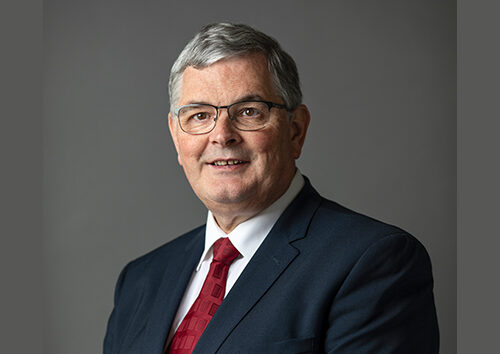24 May 2023 | Ulceby, England [ESDA]
The time: 1884. The place: Ulceby, England. The story: Albert Armstrong is born, one of the earliest pioneers in the history of the 94 year mission of the Trans-European Division. As we celebrate 160 years of the organisation of the Seventh-day Adventist Church, tedNEWS retells stories of our early beginnings to remind us of the ‘why’ we are here. Where to find those stories? There is no better place to look than in the Encyclopedia of Seventh-day Adventists. (ESDA)
Albert Kingsley Armstrong was a pioneering evangelist and pastor in Great Britain, where he served for 56 years. Born on 19 February 1884, in Ulceby, North Lincolnshire, England, he was one of five sons of Edward and Frances Armstrong, the earliest converts to the Seventh-day Adventist Church in England, Albert is thought to be the first child born to an Adventist family in Britain.

Baptized at age 17, he attended Duncombe Hall College, London, which had moved and was renamed Stanborough Park Missionary College by the time he graduated in 1908.
Armstrong married Eunice Annie Lane in 1908 and then travelled to Ireland, to begin their ministry together. Five years later, they returned to the North England Conference where he served as a pastor pastor and evangelist in Birmingham and other churches in the English Midlands where he conducted evangelistic series for 16 years.

At the beginning of 1928 Armstrong commenced evangelistic work in Northampton, where the congregation had just 11 members at the time. Hiring the largest theatre in Northampton for the advertised “Revival Campaign.,” on the opening night 2,000 people attended, with others having to be turned away. Each Sunday that followed 1,400 people registered.
Armstrong was not only a pastor and evangelist, but also a musician. When a revision to the Advent Hymnal was published in 1928, it included his composition “Chosen Hill” with the words “One There came from Heaven.” This hymn along with another, “Tender Shepherd,” would later appear in the New Advent Hymnal printed by the Stanborough Press in 1952.
At the dawn of the 1930’s, Armstrong transferred to the South England Conference, where he commenced pastoral work in London, initially in the North London Walthamstow church. A year later tent meetings began in South London strengthening the group of believers that met in the Forest Hill church with 11 people baptised.
Following a move to the south coast of England, Armstrong continued to lead the members in outreach and evangelism, with funding by local members. But it wasn’t long before Alfred was back in London, this time in the area of Islington to conduct evangelistic outreach. By the end of 1934 Albert became the pastor of the Holloway church.

In 1936 while senior pastor at Holloway, and with the assistance of A. J. Mustard, he was appointed to “foster the work in Wood Green”. Later that year, Armstrong conducted evangelism in Southampton with 750 people attending the first meeting. A year later, he baptised nine people with another person joining the church by profession of faith.
Sometime during the war years Armstrong moved to Plymouth. A report from the union president H. W. Lowe mentions that the Plymouth Church building suffered minor damage from an air raid while one member and her husband (Mr and Mrs Goss) died in an air raid.
After the war and what was to be his final appointment. Armstrong pastored the Stanborough Park Church commencing his ministry there around 1957 just as Stanborough Park celebrated a “Golden Jubilee.” As part of the British Advent Messenger report of the August 5 events, Armstrong wrote a short history of the Stanborough Park Church, considered at the time to be the flagship church, located next to the denomination’s UK and Ireland headquarters in Garston, Watford. He he remained there as pastor for 10 years and then for nine years as chaplain at Stanborough school. He was living there when he died on January 23, 1965, at age 80. His wife died on December 22, 1971, at age 86.
The original, unabridged version of this article was published on the Encyclopaedia of Seventh-Day Adventist’s website. [Photos: ESDA and David Neal].
Discover more pioneers: John Gottlieb Matteson, a minister, editor, and pioneer missionary in Scandinavia. Steen Emil Marius Rasmussen, who played a major role in developing the youth work of the Seventh-day Adventist Church, first in Scandinavia and later in the rest of Europe.



